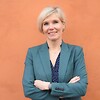-

Positive EMA Decision for BioArctic's New Drug Candidate
Bioarctic's drug candidate for multiple system atrophy, exidavnemab, is recommended to be classified as an orphan drug, according to the European Medicines Agency (EMA).
-

Positivt EMA-besked för Bioarctics nya läkemedelskandidat
Bioarctics läkemedelskandidat för multipel systematrofi, exidavnemab, rekommenderas bli klassat som särläkemedel meddelar den europeiska läkemedelsmyndigheten EMA.
-

Trump in new push to lower drug prices
U.S. President Donald Trump announced on Sunday that he plans to sign an executive order to lower the cost of prescription drugs to the same levels paid in other wealthy countries — something he claims could reduce prices by 30 to 80 percent.
-

Health politician Lina Nordquist: ”I find it hard to be idle”
She is the pharmacist and researcher who grew tired of the breakthroughs that never materialised and knowledge that never seemed to reach patients, so she decided to make a change from within. Life Science Sweden meets Lina Nordquist, Member of Parliament for the Liberals and their spokesperson on healthcare policy, to have a conversation about reality, politics, and the need for writing.
-

Large study on milk: Risky for women but not for men
The risk of ischemic heart disease (IHD) and acute myocardial infarction (MI) increased for women with milk intake levels higher than 2 glasses per day, while no such association was found in men, according to a new large Swedish study.
-

Medivir CEO on upcoming study: ”It's about working together with others”
Medivir is a small company with a big task: to take its drug candidate, via extensive clinical studies, all the way to a patient group that currently lacks approved treatment alternatives. "We can't do that on our own – our entire R&D activities are about working together with others," says the company's CEO Jens Lindberg.
-

Sobi announces agreement with Enable Injections
Swedish biopharma Sobi has entered into an international development and distribution agreement with US drug delivery company Enable Injections.
-

Ingrid Lönnstedt: ”The confidence interval and its width”
Always keep an eye on the width of your and others’ confidence intervals, writes Ingrid Lönnstedt in a science column.
-

Ny kurs ska väcka passion för statistik – ”Många får panik”
Kan man förstå och tolka kliniska studier – utan att vara bra på matte? Ja, menar Anna Törner som tillsammans med Ingrid Lönnstedt skapat en onlinekurs för att fler ska våga närma sig statistiska metoder.
-

Anna Törner: ”Orphan Designation – the "petite robe noire" of drug development”
It is easy to cling to various regulatory incentives, like orphan designation, and other expedited pathways, without understanding what they truly mean or whether they are indeed right (or wrong) for the current project, Anna Törner writes in a column.
-

Anna Törner: ”Orphan designation läkemedelsutvecklingens ’petite robe noire’”
Det är så lätt att klamra sig fast vid olika regulatoriska incitament, som orphan designation, utan att egentligen veta vad de innebär och på vilket sätt de kan vara rätt (eller fel), skriver Anna Törner i en krönika.
-

Ny medicinsk chef på Vicore Pharma
Läkaren Bertil Lindmark blir ny medicinsk chef, Chief Medical Officer, för Vicore Pharma.
-

The Swedish innovation model: “There is a paradox”
It is often said that Sweden is strong when it comes to innovation, but how well are we turning that innovation into actual medicines?
-

Marie Gårdmark: ”The situation is not satisfactory”
”The legislative tool-box is limited, but carrots in the form of longer exclusivity has already proven successful, this has for example increased registration of new products in rare diseases. But will it also work to increase access for all EU patients?” writes Marie Gårdmark in a column.
-

Astra Zeneca’s Sweden CEO: “We have great faith in our portfolio”
It all started with a summer job as an operator at Astra’s chemical factory in Snäckviken, just outside Södertälje. More than three decades and countless different assignments later, Per Alfredsson, born and raised in Södertälje, is CEO of Astra Zeneca Sweden, which employs 7800 people in Södertälje, Stockholm and Gothenburg. “It was a very special feeling to be in charge of the entire organisation,” he says in an interview about his career and potential future blockbusters.
-

Rapid developments in AI – “All stakeholders are struggling to understand it”
Artificial intelligence is being discussed more and more, and developments in the field are moving rapidly. As the Swedish Medical Products Agency testifies, keeping up with developments is not easy.
-

The Swedish National Board of Health and Welfare rejects prioritising andrology as a speciality
Male infertility can be linked to a shorter lifespan and several severe diseases, but when couples who want children are examined, the focus is on the woman. Experts in the field claim that andrology needs to become a speciality in Sweden to increase awareness and knowledge. But the Swedish National Board of Health and Welfare says that it is not a priority.
-

A surprising discovery about the immune system in cases of cancer
Professor Göran Jönsson is trying to understand why some patients benefit from immunotherapies while others don’t. A couple of years ago, he made a surprising discovery about the function of the immune system.
-

He saved lives with his theories – was ostracised and ended up in a mental hospital
Hungarian doctor Ignaz Semmelweis (1818-1865) undoubtedly possessed plenty of persistence, diligence and sound reasoning skills – but he was hardly blessed with luck and timing.
-

Marie Gårdmark: Potential step change – EU regulators get to play with data
A new pilot from EMA is starting in September to assess wether the analysis of 'raw data' by regulatory authorities improves the evaluation of marketing approval for new medicines. Marie Grådmark writes in a column that she is looking forward to the outcome of the pilot to hopefully then understand if “in house” analyses actually will add value.
-

CAR-T therapies give continued hope: “Almost half of the patients have become disease-free”
When the first CAR-T therapies appeared, hopes were raised for the effective treatment for critically ill cancer patients. After a somewhat sluggish start, about 90 patients in Sweden have now been treated with this method. “Almost half of them have become disease-free, at least of those treated with Yescarta, which are the ones I know best,” says Gunilla Enblad, Chairman of the national working group for CAR-T treatment.
-

Karolinska i Europatopp när "smartaste" sjukhusen rankas
Karolinska universitetssjukhuset i Solna är bäst i Europa på att använda ny teknik inom sjukvården, enligt en rankning i tidskriften Newsweek.
-

Krönika: Collaboration across borders
-

Pharma-on-Demand
Make or buy? That is the question that the pharma world has been asking more and more in the last couple of decades. Pernille Hemmingsen is moderator at Pharma Outsourcing Dec 10th i Stockholm. This is her thoughts about outsourcing.
Få tillgång till allt innehåll på Life Science Sweden
Ingen bindningstid eller kortinformation krävs
Redan prenumerant? Logga in
Gäller endast personlig prenumeration.
Kontakta oss för en företagslösning.